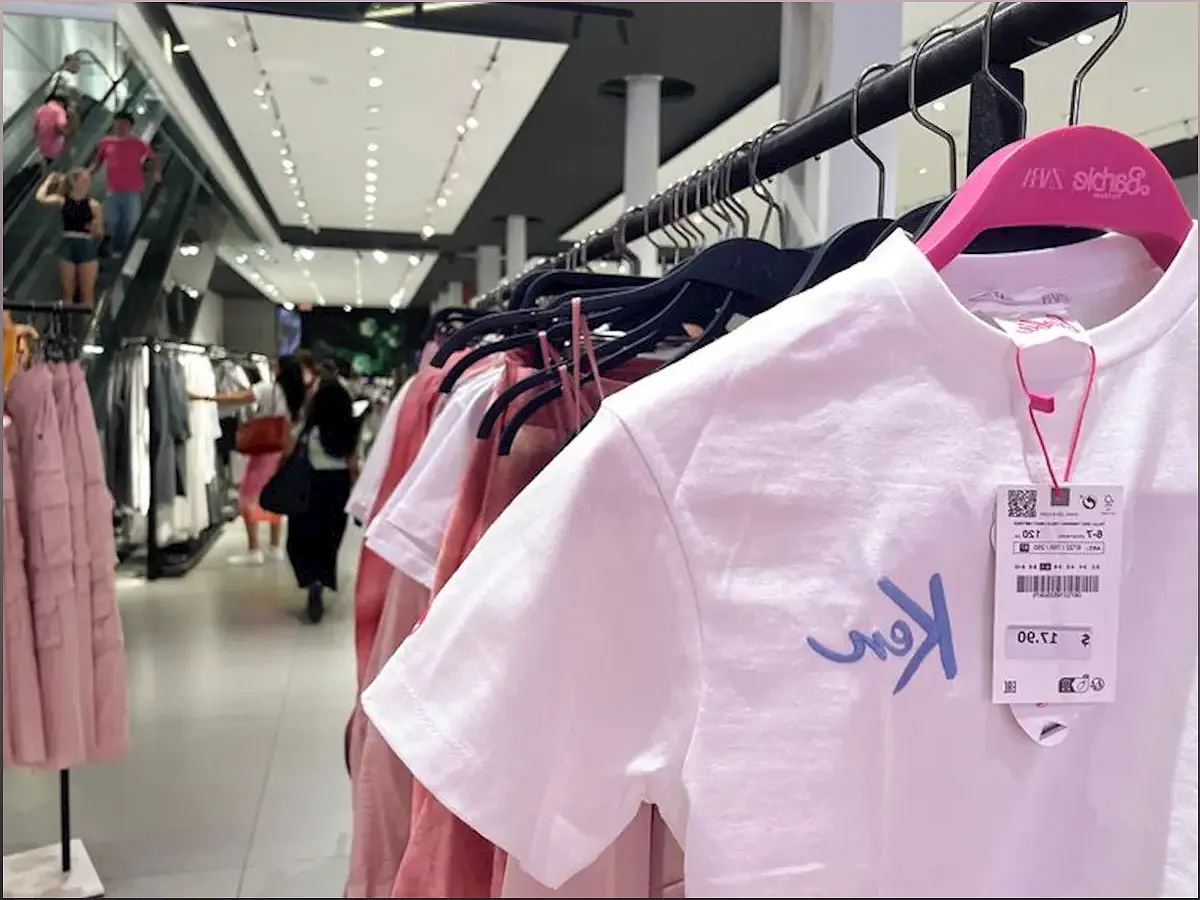Inditex, the world's largest clothing retailer and owner of Zara, is taking a major step towards sustainable fashion by investing in and purchasing recycled polyester from U.S. start-up Ambercycle. This partnership aims to reduce the reliance on virgin polyester and promote the use of recycled materials in the fashion industry. Let's explore the details of this exciting collaboration and its potential impact on the future of fashion.
Inditex's Investment in Recycled Polyester: A Sustainable Fashion Initiative
Inditex's decision to invest in and purchase recycled polyester from Ambercycle marks a significant step towards sustainable fashion.
Inditex, the parent company of Zara and the world's largest clothing retailer, has made a strategic move towards sustainable fashion by partnering with U.S. start-up Ambercycle. Through this collaboration, Inditex aims to reduce its reliance on virgin polyester and promote the use of recycled materials in its products.
By investing in and buying a significant portion of Ambercycle's production of recycled polyester, Inditex is supporting the development of a commercial-scale textile recycling factory. This factory, expected to begin production around 2025, will produce cycora, a brand of recycled polyester that will be used in Inditex's products over the next three years.
This initiative not only helps Inditex meet its sustainability goals but also contributes to the overall efforts of the fashion industry to reduce waste and minimize its environmental impact. With EU legislation requiring separate collection of textile waste from January 2025, Inditex's collaboration with Ambercycle aligns with the industry's preparations for a more sustainable future.
The Importance of Recycled Polyester in Sustainable Fashion
Recycled polyester offers a more sustainable alternative to virgin polyester, reducing the reliance on fossil fuels and minimizing environmental impact.
Recycled polyester, such as the one produced by Ambercycle, plays a crucial role in promoting sustainable fashion. Unlike virgin polyester, which is derived from fossil fuels, recycled polyester is made from post-consumer waste, such as plastic bottles.
By utilizing recycled polyester, fashion brands like Inditex can reduce their carbon footprint and minimize the environmental impact of their products. This material helps divert plastic waste from landfills and reduces the need for extracting and processing new raw materials.
Furthermore, the production of recycled polyester consumes less energy and water compared to virgin polyester, making it a more sustainable choice for the fashion industry. By incorporating recycled polyester into their products, brands can contribute to a circular economy and promote a more environmentally conscious approach to fashion.
Challenges and Criticisms of Using Recycled Polyester
While recycled polyester offers sustainability benefits, it is not without its challenges and criticisms.
While the use of recycled polyester is a step in the right direction, it is not a perfect solution. One of the main challenges is the increased demand for used plastic bottles, which can drive up prices and create competition for resources.
Additionally, the recycling process for polyester can still have environmental implications, such as the release of microplastics into the environment. Proper waste management and recycling infrastructure are essential to mitigate these issues and ensure the sustainability of recycled polyester.
Furthermore, the fashion industry as a whole needs to address the issue of overconsumption and fast fashion, which contribute to the accumulation of textile waste. While using recycled polyester is a positive step, it should be accompanied by efforts to reduce overall production and promote a more circular and sustainable fashion system.
Inditex's Commitment to Textile Recycling and Waste Management
Inditex has been actively investing in textile recycling start-ups and collaborating with industry peers to manage clothing waste.
Inditex's partnership with Ambercycle is not its first foray into textile recycling. In Spain, the company has joined forces with other fashion brands, including H&M and Mango, to form an association focused on managing clothing waste.
These collaborations are in line with the upcoming EU legislation that will require member states to separately collect textile waste from January 2025. Inditex's commitment to textile recycling and waste management showcases its dedication to reducing the environmental impact of the fashion industry and promoting a more sustainable approach to fashion.
Conclusion
Inditex's investment in and purchase of recycled polyester from Ambercycle represents a significant step towards sustainable fashion. By utilizing recycled materials, Inditex aims to reduce its reliance on virgin polyester and promote a more environmentally conscious approach to fashion.
Recycled polyester offers a more sustainable alternative to virgin polyester, reducing the reliance on fossil fuels and minimizing environmental impact. However, challenges such as increased demand for used plastic bottles and proper waste management need to be addressed to ensure the long-term sustainability of recycled polyester in the fashion industry.
Inditex's commitment to textile recycling and waste management, along with its collaborations with other fashion brands, showcases its dedication to reducing the environmental impact of the industry and promoting a more circular and sustainable fashion system.

